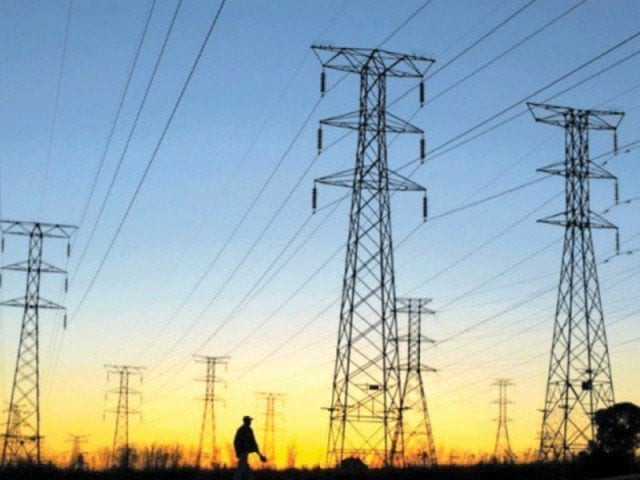Tax exemption to $2.1b CPEC project still in limbo
Ministry withdraws summary, ECC lowers WHT on banking transactions for non-filers

PHOTO: AFP
Owing to fierce resistance by the Federal Board of Revenue (FBR), the Ministry of Water and Power had to withdraw its summary from the Economic Coordination Committee (ECC) of the Cabinet. The summary sought unprecedented level of tax exemptions that, if approved, could kill many local industries besides causing billions of rupees losses to the exchequer. It was the second time in less than ten days that the federal government tried to extend tax exemptions to CPEC transmission line project.
However, in another matter, the federal government breached the sanctity of the new budget even before its formal implementation from July, by lowering the withholding tax (WHT) rate on banking transactions valued at over Rs50,000 by a third for non-filers of income tax returns.
CPEC exemption
The $2.1 billion worth 660-kilovolt high-voltage direct-current (HVDC) Matiari-Lahore transmission line project is being developed by China Electric Power Equipment and Technology Company under CPEC. The Private Power Infrastructure Board (PPIB) had approved an Implementation Agreement and Transmission Services Agreement of the project and its submission to the ECC.
The Ministry of Water and Power had sought exemptions from all types of income taxes, sales tax and custom duties including goods that are locally produced and can be supplied for completion of the transmission line project.
Nature of exemptions
It claimed that as per October 2014 ECC decision on a summary of Policy to attract Private Sector Investment in Transmission Line project, the CPEC scheme was entitled to huge tax exemptions.
The ministry demanded that the profits and gains derived by a domestic company from transmission line project should be exempted from standard corporate income tax for a period of 10 years. The Matiari transmission line project should also be exempted from 1.25% minimum income tax and 17% alternate corporate income tax for a period of ten years.
The withholding taxes on import of plant and machinery and specialised vehicles should also be exempted for 10 years.
However, the most alarming clause was that even the materials that are locally available should also be exempted from custom duties.
Many local Pakistani industries including cable manufacturers have started complaining about the adverse implications of the CPEC tax exemptions on their businesses. Pakistan has already extended over $1.5 billion tax exemptions to various CPEC projects. This has affected FBR’s revenues besides putting the local industries at a disadvantageous position.
The sources said that this time the FBR fiercely opposed these exemptions and said that the ministry had not addressed the concerns of the tax authorities before bringing the summary to the ECC. The ECC chairman directed the ministry to withdraw the summary.
The FBR and Ministry of Water and Power have held meetings to sort the issue and hopefully consensus will be achieved in the next meeting, said Yousaf Naseem Khokhar, Secretary Ministry of Water and Power while talking to The Express Tribune. He said that if consensus could not be reached, then the ECC would decide the matter.
Budget sanctity
The federal government on Saturday breached the sanctity of the new budget when it lowered the WHT rate on banking transactions valued at over Rs50,000 by a third for non-filers of income tax returns. The ECC approved the reduction in WHT rates on banking transactions from 0.6% to 0.4%.
The government had initially decided to restore the original 0.6% WHT rate charged for transactions of over Rs50,000 a day, as it did not bring any change in section 236P of the Income Tax Ordinance through Finance Act 2017.
But before the applicability of the 0.6% rate, it again reduced the rate to 0.4% till September 30, highlighting inconsistency in taxation policies. This has undermined the sanctity of the budget that the National Assembly passed this week.
It also shows that the government is not serious about penalising non-filers, as the numbers of filers remained at only 1.2 million.
The ECC also extended the date for submission of subsidy claims regarding PM’s Package for Exporters till September 30, 2017 for shipments/exports made up to June 30, 2017. It also extended export period of wheat and wheat products beyond March 15, 2017 till August 31, 2017.
Published in The Express Tribune, June 18th, 2017.
Like Business on Facebook, follow @TribuneBiz on Twitter to stay informed and join in the conversation.



















COMMENTS
Comments are moderated and generally will be posted if they are on-topic and not abusive.
For more information, please see our Comments FAQ